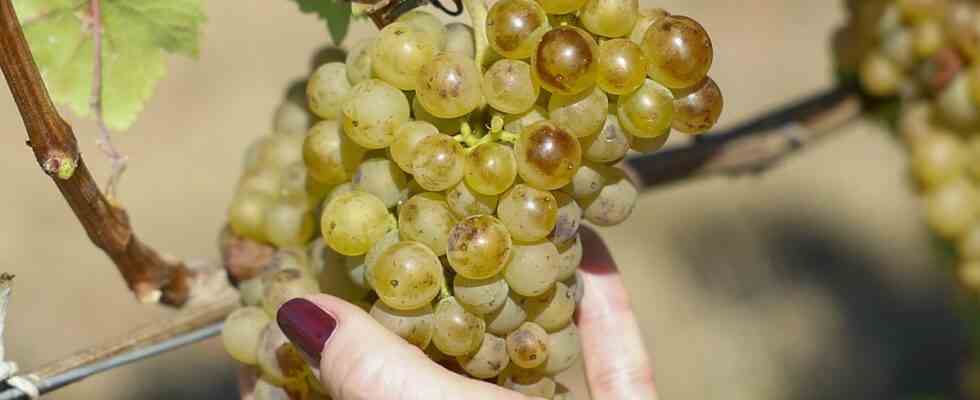According to the winegrowers, the 2022 Franconian wine vintage will be first-class. “The must weights are excellent,” said Franken’s winemaker president Artur Steinmann on Monday in Zeil am Main at the official start of the vintage. However, the harvest volume will not quite reach the level of previous vintages. The vines are healthy. “That gives sparkling clean, pure wines,” said Steinmann. “These are great wines, but we also have to be able to make a living from them. We’ll be missing a bit of volume this year,” he added. There, where the rainwater was all too lacking, something had to be reworked in the basement.
Prime Minister Markus Söder (CSU) said at the official start of the harvest, which had started days ago in some locations due to the weather, that the lack of water was a major challenge for the winegrowers. When it comes to water management for the Franconian vineyards, more speed is needed in administration. In addition to collecting rainwater, the winegrowers also want to take water from the Main to create irrigation systems for the vineyards. There are differences of opinion with environmentalists, who do not approve of removing river water.
“The year 2022 was the driest wine year since I can remember in viticulture,” said Steinmann. “If we don’t get irrigation for our vineyards, there will be no more viticulture in Franconia in 50 years,” he emphasized. It is not about using ground or drinking water. Rather, it is necessary to store the rainwater when it falls in order to keep it available in dry periods. “The water must be stored when there is enough available.”
Bavaria’s Agriculture Minister Michaela Kaniber (CSU) assured that the winegrowers would be supported with subsidies from the Free State. She emphasized that in plant protection, the reduction of pollutant inputs must be promoted with foresight. “We have to be wide awake about what Brussels is planning,” she said. Bavaria wants to reduce its inputs of pesticides by 50 percent by 2028. However, there should be no paternalism and the principle of voluntariness must be used in order to be able to preserve centuries-old cultural landscapes.
With a cultivation area of 6300 hectares, the Franconian wine-growing region around the Mainschleife near Würzburg is one of the smaller wine regions in Germany. 2900 winegrowing families grow wine in Franconia. The 200 wine-growing villages in Franconia have meanwhile also become a magnet for tourists.

